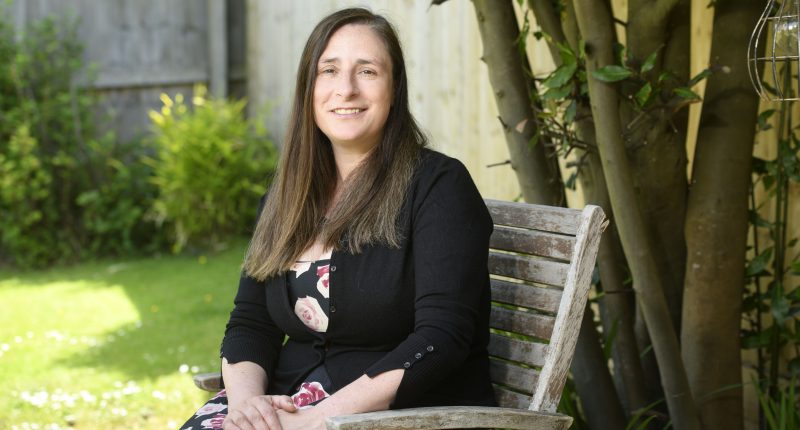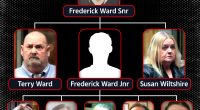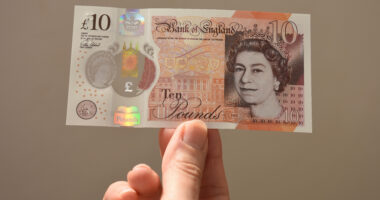THOUSANDS of parents unknowingly fall into an “unfair” child benefit tax trap every year.
But there are several ways to ensure you can avoid it without having to pay back any of the free cash.
Child benefit is currently worth £24 a week for the eldest or only child, adding up to £1,248 a year.
Parents get £15.90 a week for each subsequent child – or £826.80 a year.
Claim it and you’ll also get free National Insurance (NI) credits.
These credits count towards your state pension, so you do not have gaps in your NI record if you do not work or earn enough to pay NI contributions.
Read more in money
However, if you or your partner earn over £50,099 a year, you need to repay some child benefit or all of it if you earn over £60,000 via a tax return.
This rule came into force in 2013 and is dubbed the high income child benefit charge.
We spoke to Sarah Coles, head of personal finance at Hargreaves Lansdown, to find out the best ways to avoid this penalty.
She said: “Since the rules changed in 2013, if you or your partner make more than £50,099 a year, you’ll need to start paying at least some of it back.
Most read in Money
“The problem is, this threshold hasn’t changed since it was introduced back in January 2013.
“If it had risen with average wages, it would be £71,774.
“It means that over time, more people have been dragged into repaying this benefit – so that right now, one in eight families face this charge – however, there are still ways to avoid it altogether.”
Know when not to claim
If either parent is earning over £50,000 they have to pay the high income child benefit tax charge.
This means you pay back 1% of your child benefit payments for every £100 of income over this amount.
But by the time you earn £60,000 or more, you need to repay it all.
If you fit into this bracket Sarah recommends not applying for the benefit.
But if you already do and expect your income to breach this threshold, she said: “It’s a good idea at this stage to tell HMRC you don’t want to receive payments any more.”
By doing so, you won’t be liable to pay all the child benefit back and won’t need to go through the hassle of declaring your income.
Declare at the threshold
For those earning over £50,099 a year, you’ll want to declare your earnings each year by filing a tax return.
Sarah said: “The high-income child benefit charge kicks in at £50,000.
“This threshold is controversial partly because it applies equally to single parents and couples – so a single person repays once they make £50,100 – whereas a couple could earn £50,099 each and keep all the benefit.
“What you repay will depend on your income, because you repay 1% of the benefit for every £100 you’re over the £50,000 threshold.”
Fail to declare your earnings, and you could end up with a hefty unexpected tax bill plus a penalty.
This happens all too often, and Sun Money has heard from numerous families who’ve faced penalties for not reaching out to HMRC.
We recently spoke to a dad-of-two who was forced to borrow £20,000 against his home after being hit with one of these bills.
How do I file a tax return?
TO file a self assessment tax retun, you’ll need to register with HMRC first, which will then issue you with a Unique Taxpayer Reference (UTR).
You must register for self assessment by October 5 if you have to file a tax return and you have not sent one before.
You can do so by visiting www.gov.uk/register-for-self-assessment.
If you’ve previously registered and already have a UTR, you don’t need to go through this step again.
Once you’ve got your UTR, you can sign in via the “Self Assessment tax return” section of HMRC’s website by visiting www.gov.uk/log-in-file-self-assessment-tax-return.
You can then file your self assessment tax return online.
The deadline for sending a return online is January 31 every year.
If you need a paper copy of the main Self Assessment tax return, call HMRC on 03000 200 3610 and request an SA100 form.
The deadline for sending a return using a paper form is October 31 every year.
You need to pay the tax you owe by midnight on January 31 each year.
HMRC accepts your payment on the date you make it, not the date it reaches its account.
File late and HMRC will issue you with a fine.
Boost your pension pot
Sarah says that one of the most effective ways to avoid the high income child benefit charge is by making pension contributions.
She said: “This is because these are subtracted from your income when the charge is calculated.
“You may be able to bring the income that counts down below £50,000, and protect yourself from the charge entirely.
“Unfortunately, this won’t leave you with more cash in your pocket, but it will leave you better off further down the line.”
Most Brits have a workplace pension scheme which helps employees save for their retirement outside of the state pension.
Since October 2012, employers have had to automatically enrol workers into one of the schemes.
There are minimum contributions that you and your employer must pay.
A minimum of 8% must be paid into the pension, with you contributing 5% and your employer paying at least 3%.
But workers could boost the amount they save into their pot to help bring their income below the threshold at which they’re forced to pay the high income child benefit charge.
You can increase your pension contributions by telling your employer, who will arrange for additional voluntary contributions to be collected from your pay.
Get an ISA
Sarah also recommends opening a cash ISA (individual savings account) to shave some of the charges even further.
She said: “The £50,000 income threshold includes things like taxable interest from savings, as well as salaries and bonuses.
“By moving any savings into an ISA, parents can lower their taxable income from savings to reduce the charge – or avoid it altogether.
“It also means you’ve protected your savings from tax, so it’s a win-win.”
A cash ISA is a type of savings account that offers tax-free interest on your money.
This means you can earn interest on your savings in a bank or building society without paying tax.
There are two types of cash ISAs, easy-access and fixed.
- Easy access – Lets you take out your money when you want without paying a penalty, and the rate you get is likely to change.
- Fixed – Your money is locked in for a certain duration and it pays a fixed level of interest.
The amount you can save is not limitless and is set by the government each tax year.
In the current financial year (2023/24) which ends on April 5, 2024, the limit is set at £20,000.
READ MORE SUN STORIES
But savings kept in an ISA will continue to earn interest tax-free until the money is withdrawn from the account.
Research websites like MoneyFacts and price comparison websites such as Compare the Market, Go Compare and MoneySupermarket will help save you time and show you the account available.









